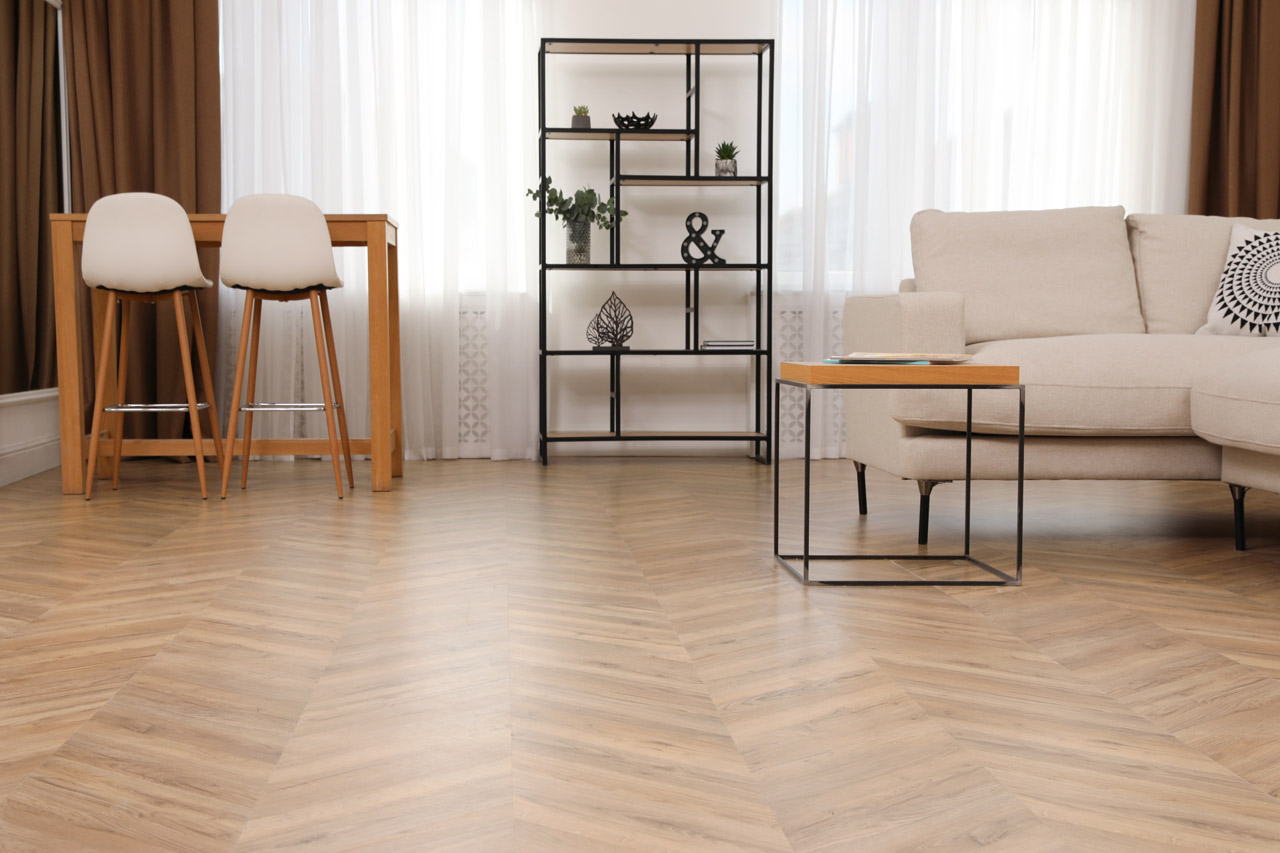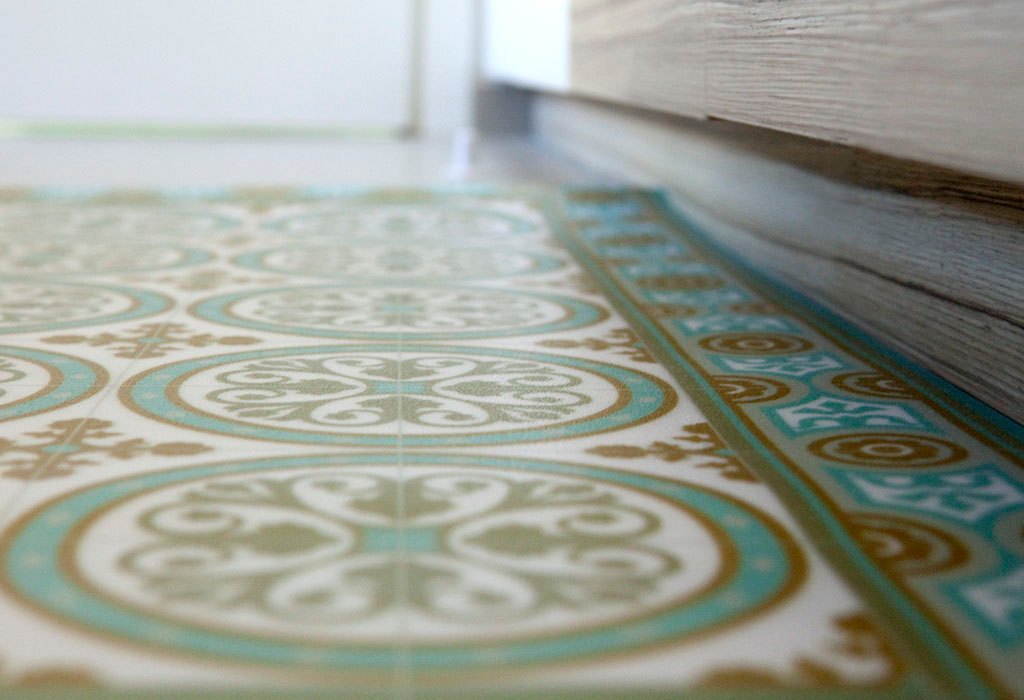Linoleum flooring also known as Linoleum is a favored option for homeowners seeking a durable flooring solution. Its versatility and longevity make it a practical choice for various rooms in the house.
Note:
Some contents in this article may contain external links. For more information, please refer to our
Privacy Policy

Linoleum is frequently confused with vinyl flooring, but it is important to note that they are distinct from each other. Before making a final decision on whether to opt for linoleum flooring, it is essential to consider the following advantages and disadvantages. This will help you determine if linoleum flooring is the suitable choice for your needs.
What Is Linoleum Flooring?
Linoleum consists of a blend of sustainable natural elements. The specific ingredients may differ depending on the manufacturer, but typically include linseed oil, jute, cork powder, tree resin, and wood floors. In contrast to vinyl flooring, linoleum features a design that is integrated into the material rather than being made up of multiple layers.
Pros of Linoleum Flooring
- Linoleum boasts durability and resistance to wear and tear, ensuring a lifespan of over 40 years with proper maintenance.
- The cost of installing linoleum flooring is notably lower compared to other flooring alternatives.
- This type of flooring comes in a diverse range of colors, patterns, and styles to suit various preferences. Its water-resistant properties make it a perfect choice for bathrooms and kitchen floors.
- Linoleum is crafted from renewable materials and is biodegradable, setting it apart from other flooring options.
- Additionally, it does not release volatile organic compounds (VOCs) that could potentially impact health.
- Its scratch-resistant nature allows it to conceal signs of wear and tear better than vinyl flooring.
- Furthermore, linoleum flooring requires minimal upkeep, only necessitating occasional mopping and sweeping.
Cons of Linoleum Flooring
- Resilient linoleum is prone to furniture leg dents.
- Professional installation is necessary for linoleum flooring.
- With prolonged exposure to direct sunlight, linoleum may darken or develop a yellowish hue.
- Certain types of linoleum are vulnerable to moisture, especially standing water, leading to irreversible harm.
- Freshly waxed or new linoleum flooring can pose a slip and fall hazard due to its slippery nature.
Cost
Linoleum flooring comes at a higher price point compared to vinyl flooring, in addition to the necessity of professional installation, which contributes to the overall expenses. It is important to note that premium, luxury, and designer linoleum styles can command even higher prices.
Maintenance and Care
Linoleum offers numerous advantages, with one of the most notable being their low maintenance requirements. Taking care of linoleum is relatively effortless, as it merely necessitates occasional sweeping and mopping to maintain its pristine condition. In the event of stains, they can be effortlessly eliminated using a mild detergent or a specialized linoleum cleaning solution to safeguard the surface from any potential harm.
In contrast to vinyl, linoleum does demand a tad more attention to retain its optimal condition. Being a softer material, linoleum is susceptible to gouges and scratches. To counteract this, periodic sealing is necessary to shield it from moisture damage and stains.
Design Options
The appearance of linoleum flooring has undergone a significant transformation over the past 50 years. Although retro-style linoleum can still be found, modern linoleum can now be printed in a vast range of colors, patterns, and faux-natural designs to cater to our aesthetic preferences. This advancement in printing techniques has expanded the design options available for linoleum, while still retaining its durability and functionality.
Is Linoleum Flooring Waterproof?
Linoleum flooring, while durable and resilient, is not inherently waterproof. Composed of natural materials like linseed oil, cork dust, wood flour, and resins, linoleum offers some water resistance against occasional spills or moisture. However, prolonged exposure to standing water or high moisture levels can still cause damage like warping, swelling, or discoloration. It is crucial to promptly clean up spills and prevent excessive moisture in linoleum areas. For spaces with high water exposure like bathrooms, kitchens, or basements, it may be wise to explore alternative flooring options with superior waterproofing capabilities, such as high-end vinyl or tile.
Is Linoleum Flooring Worth It?
Linoleum flooring is a durable flooring solution investment that can withstand decades of use without losing its originality. If you are contemplating linoleum flooring, it is essential to consider the advantages and disadvantages before making a decision. With proper maintenance and care, linoleum floors can easily last for more than 40 years and bring a distinctive charm to your home.
Why Choose AZ Floor Solutions?
At AZ Floor Solutions, we provide top-quality material, and flooring solutions that will rejuvenate your floor. Our products are user-friendly and boast long-lasting durability. For further details, please don’t hesitate to contact us at 623-336-1707 or via email at co*****@**************ns.com.
Share This Article

